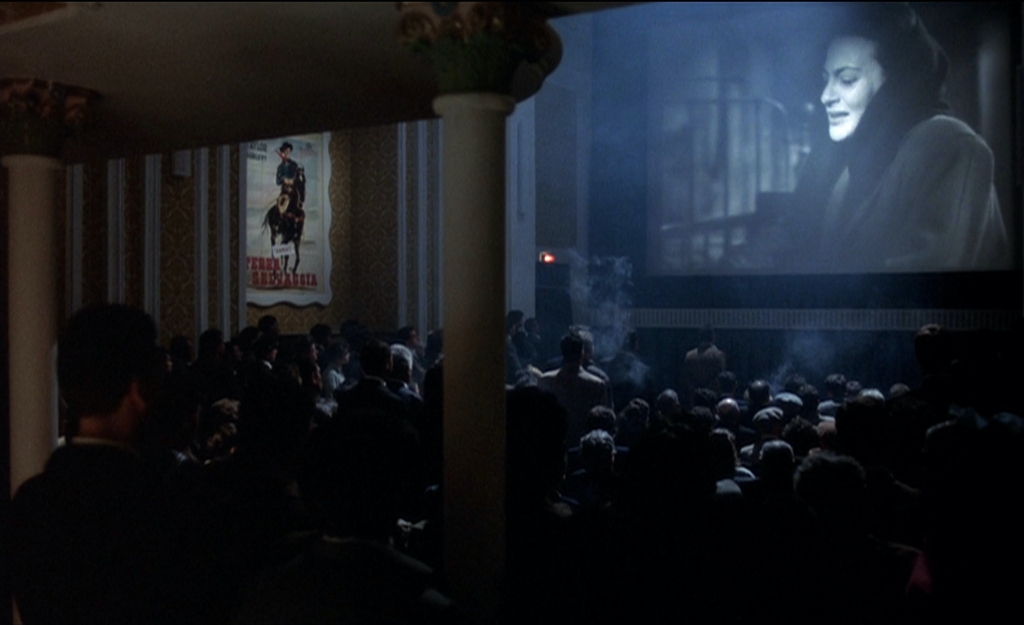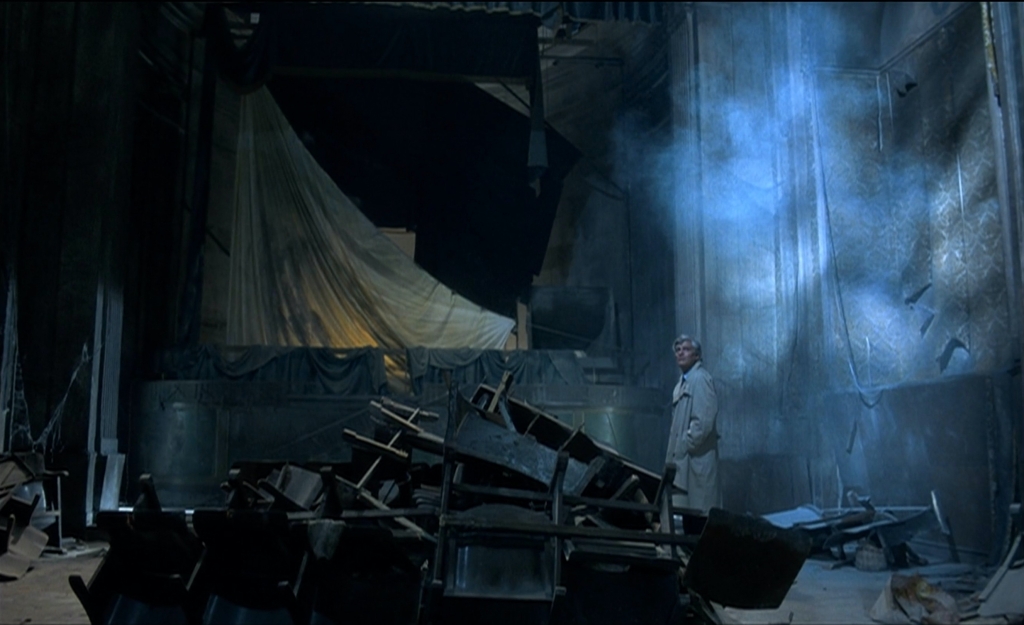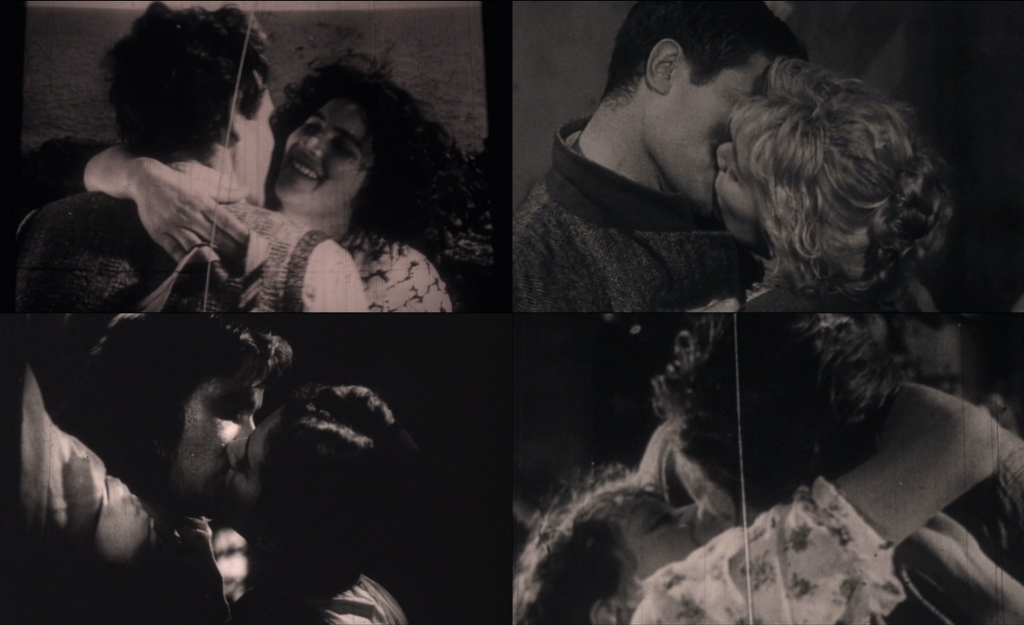Giuseppe Tornatore | 2hr 53min

Cinema Paradiso bleeds the sort of pure, unassuming love of film that greater movies may have tackled with keener self-reflexivity and more ambitious visual artistry, and yet Giuseppe Tornatore’s majestic coming-of-age tale nevertheless inspires an intoxicating sentimentalism which erodes all traces of cynicism in even the harshest critics. The childhood of his surrogate character, Salvatore Di Vita, is partially defined by those moving images that flicker across the giant screen in his tiny Sicilian town, ranging from the Hollywood westerns of John Ford to the arthouse fare of Federico Fellini. Within that darkened movie house, virtually every facet of his identity is born – the vibrant cinematic worlds that inspire his imagination, the communal gathering of odd townsfolk in the audience, and even his first sexual experiences on the floor of the theatre make the establishment a landmark for many personal milestones. Most significantly of all though, it is the friendship that he forms with Alfredo, the middle-aged projectionist, that marks his sentimental memory most deeply, evoking a nostalgia for the days they spent in his tiny room up the back playing movies for the village of Giancaldo.
In the present day, Salvatore is a famous film director, emotionally cut off from his hometown, though still affectionately remembered there as Toto, the sweet but troublesome projection assistant. Cinema Paradiso’s extended childhood flashback dominates the film like a more innocent version of Once Upon a Time in America, as Tornatore sweeps us into a long-gone era similarly distinguished by Ennio Morricone’s light, fantastical score of flutes, eventually swelling into a full, grand orchestra. Much like the movies that Toto joyfully escapes into, Cinema Paradiso’s narrative becomes a fable of escapism, drifting along on waves of vignettes that progressively reveal the pieces of history intrinsically embedded in the man he is today. Some romantic flourishes of style in Tornatore’s dreamy camerawork gliding across packed audiences and the fantastical roaring lion head sculpture through which movies are projected do well to carry a delightful charm through these scenes, though for all its sentimentality, this is not a film that possesses the same cinematic grandeur as its artistic inspirations.


Still, this is not to suggest that Cinema Paradiso lacks emotional punches in its epic, decade-spanning narrative or rich characterisations. The town square that the theatre sits on is frequented by one raving homeless man who claims the territory as his own. Light tension builds in scenes highlighting the local priest who sits in the theatre ringing a bell at any sign of intimacy, forcing Alfredo to censor the reel of its lewdness. Most movingly of all, Alfredo himself is revealed to be a truly selfless character, paying back Toto’s entry fee to save him from getting in trouble from his mother, and eventually teaching him how to work the projector itself.
A slick transition of the older man running his hand over a young Toto’s face smoothly slips us a decade into the future, revealing the features of an adolescent still helping behind the scenes. In the years since the fire that burned the theatre to the ground and its reconstruction as Nuevo Cinema Paradiso, he has taken over the duties from his now-blind mentor, and yet their friendship does not fade. Just as Tornatore will often shoot Toto centre-frame from low angles as he gazes in awe and delight at the cinema screen, so too does he carry a similar reverence for the movie house itself in exterior shots, letting it dominate symmetrical compositions like a monument to human imagination.


As Cinema Paradiso floats along with teary-eyed wistfulness, super-imposed images of black-and-white films over their captivated audiences continue to settle us into the mind of the young projectionist, drawing a direct connection between his work and the emotional impact it has on large crowds. That feeling that he is the one making them all forget their troubles is one that is evidently passed on from Alfredo, and above all else, it becomes the most rewarding part of the job.

The next step that Toto takes when he finally grows old enough to leave home is only logical – the film industry waits for him beyond the borders of Giancaldo, and Alfredo realises better than anyone that this is where he belongs. The meagre pay and scanty life of a projectionist is not one he wishes upon his young, bright-eyed friend, and neither does he wish for him to ever look back to where he came from.
With Alfredo’s passing and Toto’s return though, Tornatore begins tying back in those remnants of childhood memories that have aged and matured over the years. The girl he never quite worked it out with is still there, though given how much has changed, rekindling those old flames does not come easily. Similarly, Nuevo Cinema Paradiso is now nothing but a derelict remnant of the town’s past, sitting on the verge of demolition. As Toto re-enters the site of his childhood wonder for the first time in decades, Tornatore continues to consume him in its architecture, though the effect is now entirely different. While he has moved into the future, his childhood has simply been left to gather dust, and that joyful nostalgia is now overwhelmingly melancholy.

Still, there is one final gift left behind for him by Alfredo. Among the late projectionist’s old possessions is an unlabelled film reel, splicing together all those censored shots the town priest used to ask him to remove from romantic scenes. In those missing pieces, Alfredo finally creates a film of his own, relishing a love of life and art that has unconsciously guided Toto in all his endeavours, and which now overflows with overwhelming passion. Only an ending as profoundly in tune with film editing processes as this could tie off Cinema Paradiso’s tribute to the artform with such affectionate catharsis, as Tornatore wistfully closes the semi-autobiographical book on his first, great love.

Cinema Paradiso is not currently available to stream in Australia.

